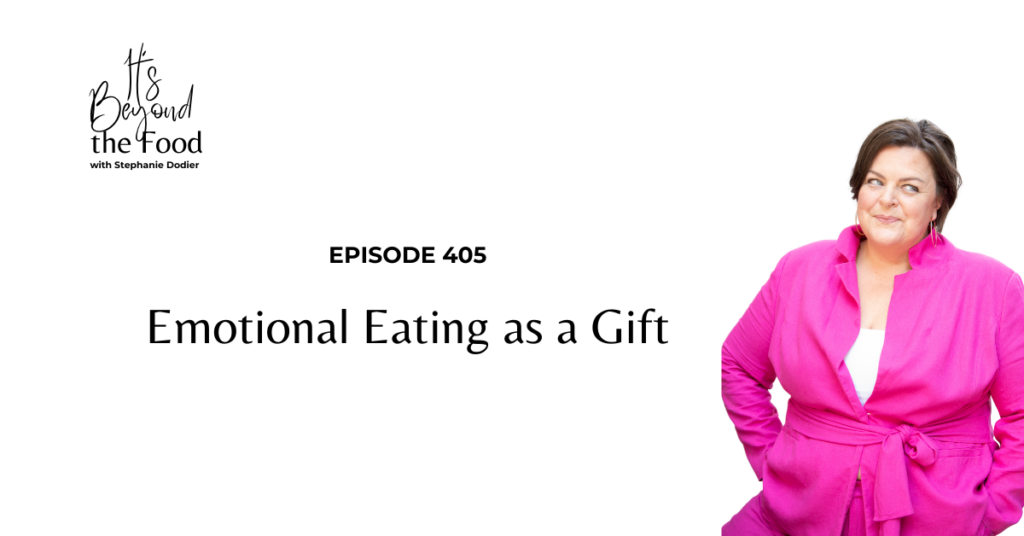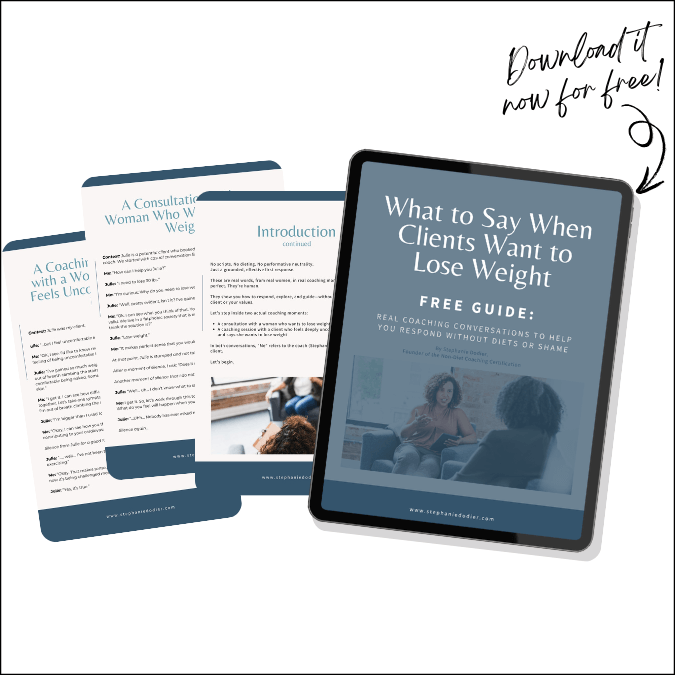As a non-diet nutritionist and certified intuitive eating counselor, I’ve spent years helping women reshape their minds, not their bodies. Today, I’m excited to share a groundbreaking perspective on emotional eating that I’ve developed over the past six to seven years.
What Is Emotional Eating?
Let’s start with the basics. Emotional eating is simply eating in response to an emotion. It’s often described as eating for comfort instead of hunger. However, it’s important to distinguish between true emotional eating and other eating behaviors.
Emotional Eating vs. Off-Plan Eating
Diet and wellness culture often label any eating outside of a prescribed plan as “emotional eating.” This isn’t accurate. Eating off-plan is usually a response to restriction, not emotions. It’s your body’s natural reaction to deprivation.
Emotional Eating vs. Binge Eating
While these can overlap, they’re not the same. Binge eating involves consuming large amounts of food in a short time while feeling out of control. It’s a diagnosable condition. Emotional eating, on the other hand, is a common behavior that doesn’t necessarily involve large quantities of food.
The Problem with Diet Culture’s View on Emotional Eating
Diet culture has taught us that emotional eating is wrong and needs to be stopped. This perspective is not only unhelpful but also harmful. It creates shame and guilt, which often leads to more emotional eating.
The Vicious Cycle of Shame
When we feel ashamed about emotional eating, we create more negative emotions. This can lead to eating even more as we try to numb these additional feelings. It’s a cycle that keeps us stuck and feeling powerless.
Flipping the Script: Emotional Eating as a Gift
What if we viewed emotional eating differently? Instead of something to be ashamed of, what if we saw it as valuable information about our lives? This shift in perspective can be incredibly empowering.
Emotional Eating is Normal
Humans have been eating in response to emotions for centuries. Think about celebrations like birthdays or holidays. We gather around food to share joy, love, and memories. It’s a normal part of the human experience.
Emotions as Body Sensations
Emotions are simply sensations in our bodies. They provide important information about our experiences and needs. When we eat in response to these sensations, we’re using food as a tool to regulate our nervous system.
The Power of Curiosity and Compassion
Instead of shaming ourselves for emotional eating, we can approach it with curiosity and compassion. This opens up possibilities for growth and positive change in our lives.
Investigating Our Emotions
When we notice ourselves eating emotionally, we can pause and ask: What am I feeling in my body right now? What’s happening in my life that might be causing these feelings? This investigation can lead to valuable insights.
Using Emotional Eating as a Guide
By exploring the reasons behind our emotional eating, we can identify areas of our lives that need attention. Maybe we’re in an unfulfilling relationship, working too much, or need more social connection. Emotional eating can guide us towards these realizations.
Taking Back Your Power
When we shift our perspective on emotional eating, we take back our power over our emotions. We move from feeling out of control to feeling empowered to make positive changes in our lives.
Listening to Our Bodies
Our bodies don’t want to feel stressed or unhappy. By listening to the messages our emotional eating provides, we can make changes that lead to more joy, compassion, and overall wellbeing.
Beyond Food: Improving Your Whole Life
This approach to emotional eating goes beyond just changing your relationship with food. It can lead to improvements in all areas of your life, helping you create a life that truly nourishes you.
Conclusion: Embracing Emotional Eating as a Tool for Growth
By reframing emotional eating as a gift rather than a problem, we open ourselves up to powerful insights and positive changes. This perspective allows us to:
- Reduce shame and guilt around eating
- Gain valuable information about our emotions and needs
- Make meaningful improvements in various areas of our lives
Remember, emotional eating isn’t the enemy. It’s a tool that, when approached with curiosity and compassion, can guide us towards a more fulfilling and joyful life.
What you’ll learn listening to this episode on emotional eating as a gift:
- A new definition of emotional eating that challenges diet culture myths
- How to approach emotional eating with curiosity instead of shame
- Ways to use emotional eating as a guide for positive life changes
- Techniques for taking back your power over emotions and food
By becoming your body’s ally and advocating for yourself, you can transform your healthcare experiences. Remember, you deserve respectful, weight-neutral care focused on your overall well-being.
Mentioned in the show:






